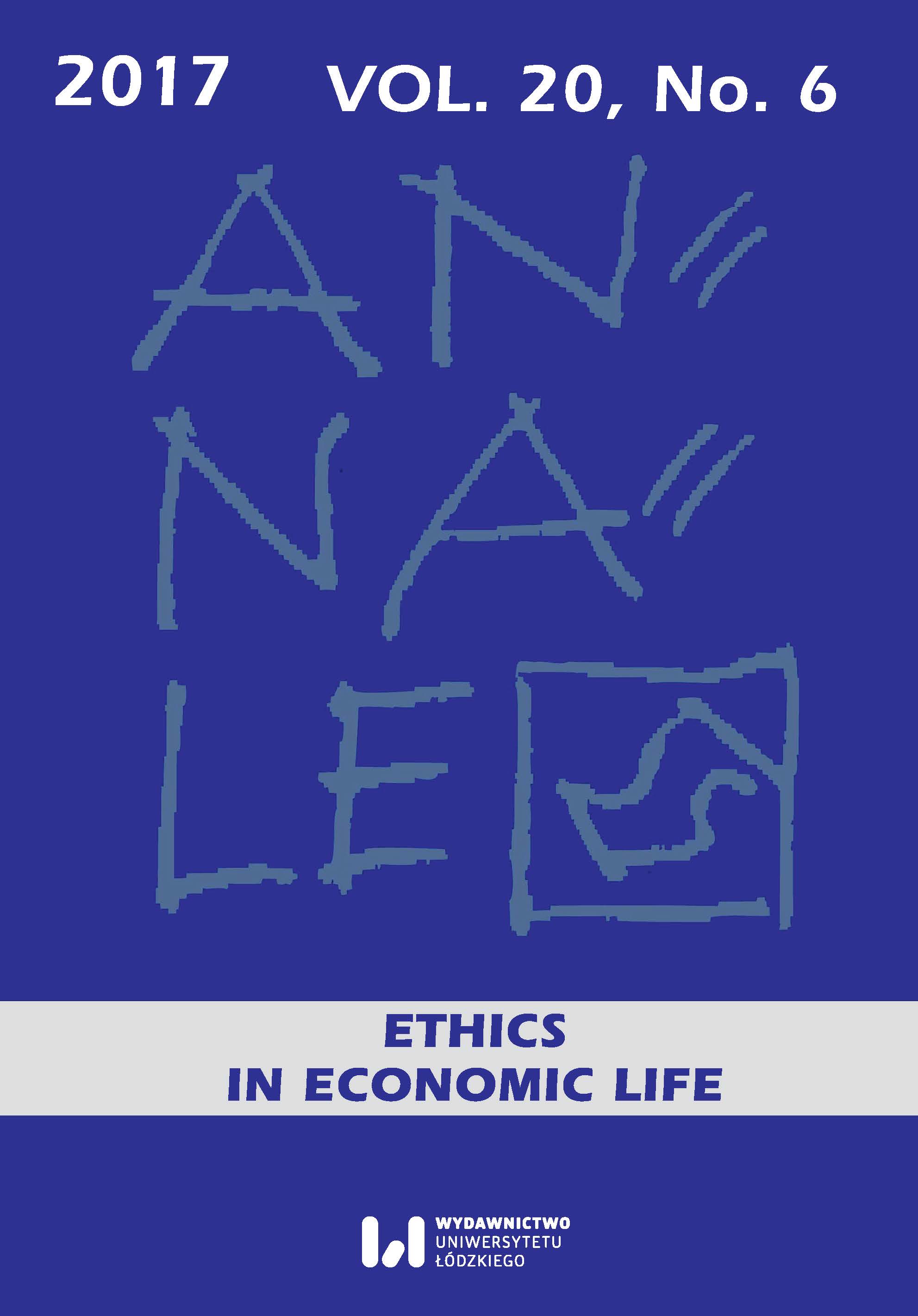The limits of moral responsibility for global poverty
DOI:
https://doi.org/10.18778/1899-2226.20.6.10Słowa kluczowe:
global poverty, moral responsibility, utilitarianism, capability approachAbstrakt
Most people, especially in South Asia and Sub-Saharan Africa, suffer and die from lack of food, shelter, and medical care, whereas other people in rich countries are extremely well-off. Because of the globalization process neither individuals nor governments can claim to be unaware of what is happening in the Third World. In this paper I defend the claim that, since we are living in a “global village”, we have greater moral responsibility for poverty. Thus, our moral responsibility is less limited than it usually seems to be. However, we do not have to be extremely impartial, which is recommended by utilitarianism (Garrett Hardin, Peter Singer), concentrating only on the consequences of action and its utility (agent-neutral evaluation). Yet, what we can include in our moral evaluation of poverty are human rights and an individual point of view, which are defended by Amartya Sen’s capability approach and Thomist framework (agent-relative evaluation).
Bibliografia
Bauman, Z. (2000). Globalizacja. I co z tego dla ludzi wynika (E. Klekot, Trans.). Warszawa: Państwowy Instytut Wydawniczy.
Google Scholar
Chyrowicz, B. (1997). Zamiar i skutki. Filozoficzna analiza zasady podwójnego skutku. Lublin: TN KUL.
Google Scholar
Chyrowicz, B. (2004). “Moralni święci”. Czy istnieje obowiązek spełniania czynów supererogacyjnych? In B. Chyrowicz (Ed.), Etyka i technika. W poszukiwaniu ludzkiej doskonałości. Lublin: TN KUL.
Google Scholar
Crocker, D. A. (1998). Development ethics. In E. Craig (Ed.), Routledge Encyclopaedia of Philosophy (Vol. 3). London and New York: Routledge.
Google Scholar
Gabriel, I. (2017). Effective altruism and its critics. Journal of Applied Philosophy, 34(4), 457–473.
Google Scholar
Galbraith, J. K. (1987). Istota masowego ubóstwa (W. Rączkowska, Trans.). Warszawa: Państwowe Wydawnictwo Naukowe.
Google Scholar
Hardin, G. (1974, September 8). Lifeboat ethics: The case against helping the poor. Psychology Today, 38–43.
Google Scholar
Kekes, J. (1984). ‘Ought implies can’ and two kinds of morality. The Philosophical Quarterly, 34(137), 459–467.
Google Scholar
Kwarciński, T. (2006). Granice moralnej odpowiedzialności za problem światowego ubóstwa. Annales. Ethics in Economic Life, 9(1), 233–244.
Google Scholar
Kwarciński, T. (2006). Komu pomóc w pierwszej kolejności. Decyzje dotyczące udzielania pomocy ubogim w świetle Amartyi K. Sena badań nad ubóstwem. Prakseologia, 146, 31–51.
Google Scholar
Moyo, D. (2009). Dead aid: Why aid makes things worse and how there is another way for Africa. New York: Farrar, Straus and Giroux.
Google Scholar
Sachs, J. D. (2005, March 14). The end of poverty. The Time, 45–54.
Google Scholar
Sen, A. (1982). Poverty and famines. An essay on entitlement and deprivation. Oxford: Oxford University Press.
Google Scholar
Sen, A. (1982). Rights and agency. Philosophy and Public Affairs, 11, 19–39.
Google Scholar
Sen, A. (1999). On ethics and economics. Oxford: Blackwell.
Google Scholar
Sen, A. (2000). Consequential evaluation and practical reason. The Journal of Philosophy, 9, 477–502.
Google Scholar
Sen, A. (2002). Rozwój i wolność (J. Łoziński, Trans.). Poznań: Wydawnictwo Zysk i S-ka.
Google Scholar
Singer, P. (1999). Practical ethics (2nd ed.). Cambridge University Press [Polish trans. (2003) Etyka praktyczna (A. Sagan, Trans.). Warszawa: Książka i Wiedza].
Google Scholar
Singer, P. (2002). Famine, affluence, and morality. In H. Kuhse (Ed.), Unsanctifying Human Life. Essays on Ethics Peter Singer. Oxford: Blackwell Publishers.
Google Scholar
Singer, P. (2015). The most good you can do: How effective altruism is changing ideas about living ethically. New Haven, London: Yale University Press.
Google Scholar
Skelton, A. (2016). The ethical principles of effective altruism. Journal of Global Ethics, 12(2), 137–146.
Google Scholar
Stiglitz, J. (2002). Globalization and its discontents. New York: W. W. Norton & Company. [Polish trans.: Globalizacja (H. Simbierowicz, Trans.). Warszawa: Wydawnictwo Naukowe PWN].
Google Scholar
Ślipko, T. (2005). Zarys etyki szczegółowej (Vol. 1). Kraków: WAM.
Google Scholar
UNDP (2016). Raport o rozwoju społecznym. Human Development Report 2016: Human Development for Everyone.
Google Scholar
Unger, P. (1996). Living high and letting die. Our illusion of innocence. New York, Oxford: Oxford University Press.
Google Scholar
World Bank (2016). Poverty and Shared Responsibility 2016: Taking on Inequality.
Google Scholar
Pobrania
Opublikowane
Jak cytować
Numer
Dział
Licencja
Prawa autorskie (c) 2017 Annales. Etyka w Życiu Gospodarczym

Utwór dostępny jest na licencji Creative Commons Uznanie autorstwa – Użycie niekomercyjne – Bez utworów zależnych 4.0 Międzynarodowe.









